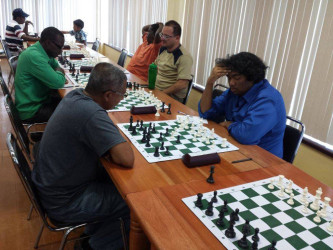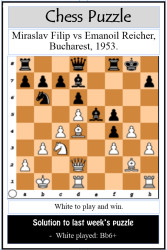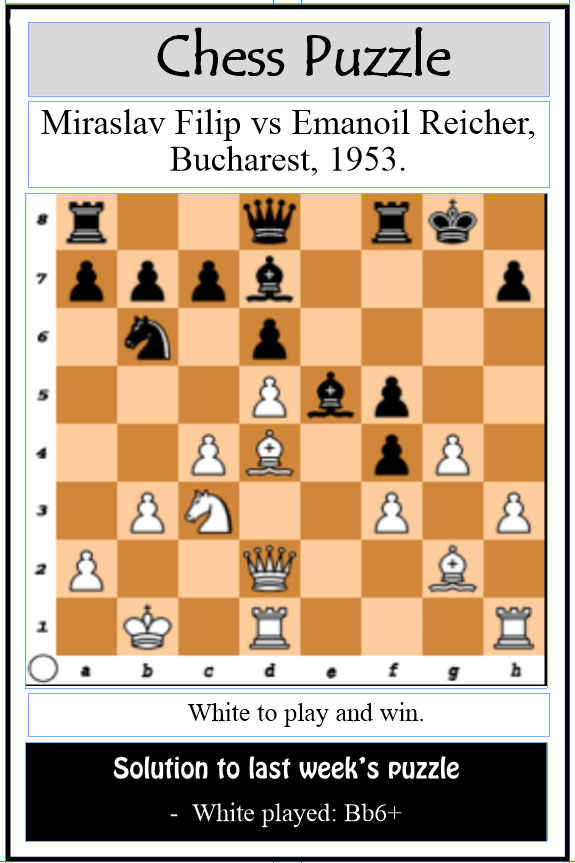“The way chess is played is often a reflection of society and current cultural trends. I see chess being played with machine knowledge in a risk-reducing way just as the people are conducting education and business.”
– Garry Kasparov, past world chess champion.
 Two Fridays ago, legendary world chess champion Garry Kasparov, author of Monumental Chess and other books, delivered a talk at the Regional Integration Event of Entrepreneurs’ Organisation titled ‘Checkmate: Reading an Opponent’s Mind. How Life Imitates Chess’ in New Delhi. It would be recalled that some years ago, Kasparov published a bestselling book, How Chess Imitates Life. Entrepreneurs’ Organisation is a global peer-to-peer network meant exclusively for entrepreneurs. The event was a networking platform from around the globe. Some 600 enterprising businessmen attended Kasparov’s talk. Other speakers included a yoga practitioner, a Bollywood film director, celebrated movie stars, business tycoons and former intern at the White House Monica Lewinsky, according to the publication Chess Base. Kasparov’s interactive talk was covered widely by the media including the influential New York Times.
Two Fridays ago, legendary world chess champion Garry Kasparov, author of Monumental Chess and other books, delivered a talk at the Regional Integration Event of Entrepreneurs’ Organisation titled ‘Checkmate: Reading an Opponent’s Mind. How Life Imitates Chess’ in New Delhi. It would be recalled that some years ago, Kasparov published a bestselling book, How Chess Imitates Life. Entrepreneurs’ Organisation is a global peer-to-peer network meant exclusively for entrepreneurs. The event was a networking platform from around the globe. Some 600 enterprising businessmen attended Kasparov’s talk. Other speakers included a yoga practitioner, a Bollywood film director, celebrated movie stars, business tycoons and former intern at the White House Monica Lewinsky, according to the publication Chess Base. Kasparov’s interactive talk was covered widely by the media including the influential New York Times.

Kasparov explained that people have a tendency to associate politics with chess. He said news channels often display sub-standard animations of chessboard and pieces during election time, fittingly associating them with the various below-par political candidates. He promulgated to all that chess is different from politics because the moves are fixed. We have fixed moves and unpredictable results. And he cited a few examples where this may not be so in other controlled societies. Since his retirement from chess, Kasparov has been participating in activism and politics.
Kasparov expressed contentment over the fact that chess is spreading rapidly across the younger generation with an upward trend being witnessed in scholastic chess. He said he is already perceiving a dramatic increase in the role chess is playing in modern society. Kasparov noted that the state, national and apex world bodies, come to the fore only after the player becomes a  champion. Until that point, it is always the sweat and blood of the players themselves, along with their coaches and well-wishers, which fuel the growth of chess. The controlling bodies should recognize this basic fact and start doling out credits where they are due, not by mere words but by channelling corporate and government funding to these talented chess players. The focus should also be on the juniors. Developing chess at the grassroots level is the way forward.
champion. Until that point, it is always the sweat and blood of the players themselves, along with their coaches and well-wishers, which fuel the growth of chess. The controlling bodies should recognize this basic fact and start doling out credits where they are due, not by mere words but by channelling corporate and government funding to these talented chess players. The focus should also be on the juniors. Developing chess at the grassroots level is the way forward.
Kasparov went on to say that it annoyed him when people contend that someone doesn’t have talent; he just works hard. Hard work is a talent. The former world champ is often regarded as the epitome of hard work in chess. The drive to always keep a step ahead of the competition, made him the chess genius we have come to admire. Kasparov believes that the fear of making mistakes in life keeps you back. We should take risks and explore new ideas in order to go forward.
Ever since he retired from active chess, Kasparov has been mounting the speaker’s podium globally on a wide variety of subjects. He writes a column on topical issues for the Wall Street Journal.
Chess games
The following games were played on February 15 in the Blitz section of the 2016 Zurich Chess Challenge Tournament.
White: Vladimir Kramnik
Black: Viswanathan Anand
1. Nf3 d5 2. g3 c6 3. Bg2 Bg4 4. O-O Nd7 5. d3
Ngf6 6. Qe1 e5 7. h3 Bxf3 8. Bxf3 e4 9. Bg2 Bc5 10.
Nc3 Qe7 11. dxe4 dxe4 12. Bg5 h6 13. Bxf6 Nxf6
14. e3 O-O 15. Qe2 Rad8 16. Rad1 b5
17. a4 a6 18. axb5 axb5 19. Rxd8 Rxd8 20. Rd1
Re8 21. Nb1 Qe6 22. b3 g6 23. Nd2 Qe5 24. Nf1 h5
25. Qd2 Qb2 26. Qe2 Bf8 27. Rd4 Bc5 28. Rd1 Bb4
29. Rd4 Bc5 30. Rd1 Bf8 31. Rd4 Bc5 1/2-1/2.
White: Hikaru Nakamura
Black: Levon Aronian
1. e4 e5 2. Nf3 Nc6 3. Bb5 Nf6 4. d3 Bc5 5. Bxc6
dxc6 6. Nbd2 Be6 7. O-O Bd6 8. d4 Nd7 9. dxe5
Nxe5 10. Nxe5 Bxe5 11. f4 Qd4+ 12. Kh1 Bd6 13.
Qe2 O-O-O 14. f5 Bd7 15. Nf3 Qa4 16. b3 Qa5 17.
Bd2 Bb4 18. Bxb4 Qxb4 19. Qf2 b6 20. Ng5 Qe7
21. f6 gxf6 22. Qxf6 Qxf6 23. Rxf6 Be8 24. Nxf7
Bxf7 25. Rxf7 Rd2 26. Rc1 Rg8 27. Rg1 Rxc2 28.
Rxh7 Rxa2 29. g4 Ra5 30. h4 Re5 31. g5 Rxe4 32.
g6 Ree8 33. h5 a5 34. g7 Kb7 35. Rh6 Re5
36. Rh8 Rxg7 37. Rxg7 b5 38. Rg3 c5 39. h6 Rh5+
40. Kg2 c4 41. bxc4 b4 42. Rh3 Rg5+ 43. Kf3 b3
44. Kf4 a4 45. Kxg5 1-0.
White: Anish Giri
Black: Hikaru Nakamura
1. Nf3 d5 2. g3 g6 3. Bg2 Bg7 4. d4 c6 5. O-O Nf6
6. b3 O-O 7. Bb2 Bf5 8. c4 Nbd7 9. cxd5 cxd5 10.
Nc3 Qa5 11. Qd2 Rfd8 12. Rfc1 Qa6 13. e3 Ne4 14. Qe1 Nxc3 15. Bxc3 Be4 16. Bf1 Qf6 17. Nd2 Bf5 18. Bg2 Nb8 19. e4 Be6 20. Ba5 Nc6 21. Bxd8 Rxd8 22. e5 Qg5 23. Qe3 Qg4 24. f4 g5 25. Rf1 gxf4 26. gxf4 Bh6 27. Rf3 Kh8 28. Raf1 Qh4 29. Kh1 Bf5 30. Rg3 e6 31. a3 Rf8 32. b4 f6 33. b5 Ne7 34. exf6 Qxf6 35. Bh3 Bg7 36. Re1 Qh6 37. Bg4 Bf6 38. Reg1 Bh4 39. Rh3 Qf6 40.
Nf3 Be4 41. Rg2 Ng6 42. Kg1 Nxf4 43. Rd2 Nxh3+ 0-1.
White: Alexey Shirov
Black: Viswanathan Anand
1. d4 Nf6 2. c4 e6 3. Nf3 d5 4. Nc3 c6 5. e3 Nbd7 6.
Qc2 Bd6 7. b3 O-O 8. Bb2 e5 9. h3 e4 10. Nh4 Re8
11. g4 h6 12. Rg1 Nf8 13. O-O-O a6 14. f4 exf3 15.
Nxf3 Rxe3 16. Ne5 Be6 17. Qd2 Rxe5 18. dxe5
Bxe5 19. Bd3 d4 20. Ne2 c5 21. g5 hxg5 22. Qxg5
N6d7 23. Qh5 b5 24. Rdf1 bxc4 25. Nf4 cxd3 26.
Nxe6 fxe6 27. Qf7+ Kh8 0-1.









